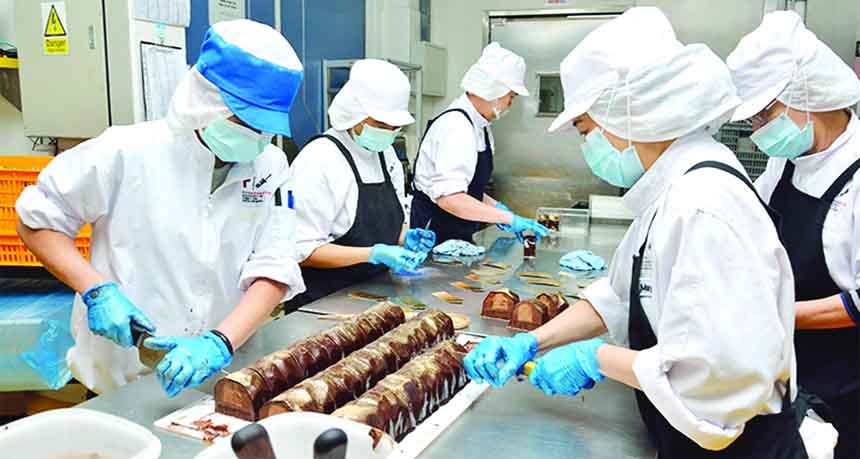
Reza Mahmud :
Trans fatty acid (TFA) is a dietary fat that can lead to multiple health hazardous, as per the World Health Organisation (WHO)’s warning.
As per the study findings of various organisations including the WHO, intake of TFA with food increases low density lipoprotein (LDL) dubbed as ‘bad cholesterol’ in the bloodstream, and simultaneously lowers the high density lipoprotein (HDL) or ‘good cholesterol’ in blood which causes serious health hazardous in human body including hypertension, cardiac attack, brain stroke and such others.
Industrially produced trans fatty acids (TFA) or trans fat is an unwanted food element toxic for human health and is responsible for increased risks of heart diseases and related premature deaths. Excessive TFA deposits bad cholesterol in the arteries and blocks the blood flow in the body, resulting in increased risks of heart diseases. Intake of excessive TFA can give way to cardiovascular diseases, heart attacks, death from heart diseases, type 2 diabetes, breast cancer, prostate cancer, dementia, and cognitive impairment. Moreover, studies have found that TFA from food is also responsible for anger, mental stress, aggression, irritability, annoyance, and even risks of depression among teenagers. It has been estimated that intake of trans fat-laden food took the toll of 12,000 deaths from heart diseases in Bangladesh in 2019.
The World Health Organization (WHO) has called on nations to eliminate industrially produced trans-fat from the global food supply chain by 2023.
Following the target set by WHO, the Bangladesh Food Safety Authority (BFSA) has notified the “Controlling Trans Fatty Acids in Foodstuffs Regulations, 2021” in the government gazette on 29 November last year, aiming to ensure trans fat free food by fixing the maximum level of trans fat to 2pc of the total fat in all fats, oils and foodstuffs.
According to this law, foodstuff with trans fat contents exceeding the limit of 2pc will be penalized under the Safe Food Act with the sentence of maximum three years of imprisonment, or fine of BDT three to six lakh, or both.
When contacted, Monzur Morshed Ahmed, BFSA Member (Public Health & Nutrition) and Chief of Technical Committee on Controlling Trans Fat, told The New Nation, “The BFSA are working closely to implement the law as early as possible as the law have to be implemented by December this year.”
He said, “We are continuously conducting meetings with the stakeholders including the businesses across the country for making them prepared to follow the law while manufacturing food items.”
When contacted, ABM Zubair, Executive Director of research and advocacy organization PROGGA (Knowledge for Progress) said that, “Regulation of trans fats in foodstuffs will benefit the people of the country from macro as well as micro point of view. The sooner the regulation is implemented the sooner the country will be free of the detrimental effects of trans fat.”
WHO estimates that around 500,000 people die of heart diseases globally each year due to consumption of excessive TFA with food. The WHO said in a report of 2020 that Bangladesh ranks among 15 countries with the highest burden of deaths from coronary heart diseases due to trans-fat intake with 4.41% of the total deaths from cardiovascular diseases being attributed to TFA intake. In order to reduce such preventable risks of trans fat-induced heart diseases and related mortalities, WHO has recommended to limit the level of TFA in all foodstuffs to 2% of the total fat content or/and ban the production and use of partially hydrogenated oils (PHO).
The prime source of industrially produced TFA in food partially hydrogenated oils (PHO) popularly known in the country as dalda or bonospoti-ghee. Generally, PHO or dalda is used in preparation of bakery products, processed foods, deep fried snacks and fast food as well as for preparing various foods at hotels and restaurants. Alarmingly, in a 2019 study, researchers from the National Heart Foundation Hospital and Research Institute have found 92 percent of sampled dalda from Dhaka to contain more than 2 percent trans- fat (trans fatty acid) which exceeds recommendations by the WHO.

